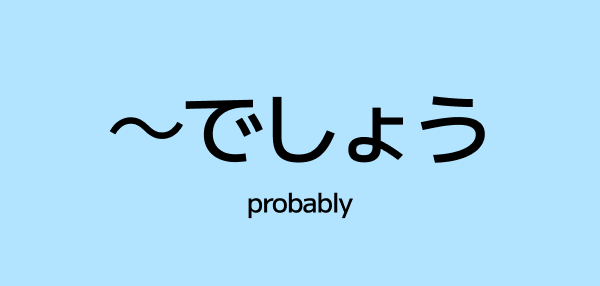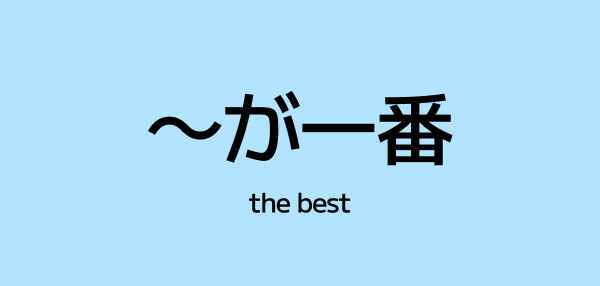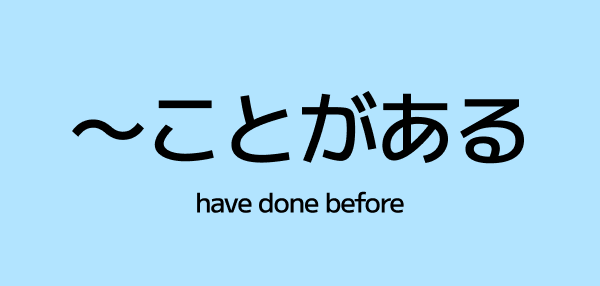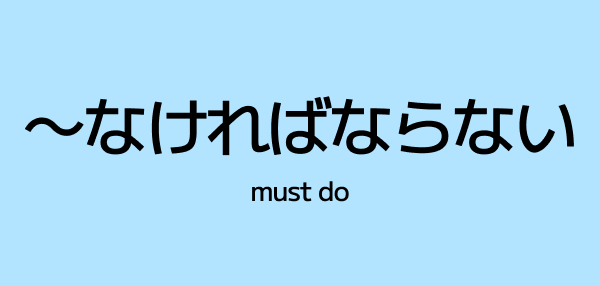~つもり (tsumori) – Intend to Do Something in Japanese
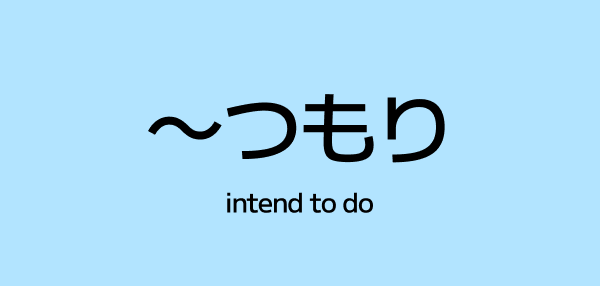
Ever needed to say "I plan to study abroad" or "I'm not planning to go"? When you want to express your intentions or plans in Japanese, ~つもり is the grammar pattern you need.
This pattern is all about stating what you intend or plan to do. It's more definite than just thinking about something — it shows you've made a decision! Let's explore how to use it naturally.
What Does ~つもり Mean?
~つもり means "intend to do" or "plan to do."
It expresses:
- Your firm intention to do something
- Plans you've decided on (not just vague ideas)
- What you're planning for the future
The key nuance: ~つもり shows you've already made up your mind. It's not "maybe I'll do this" — it's "this is what I'm planning to do."
You can also use ~つもり in the past tense to say "I intended to..." or "I was planning to..." (even if it didn't happen).
How to Use ~つもり
The basic structure is:
Verb (dictionary form) + つもりです → intend to [verb] / plan to [verb]
To make it polite, use つもりです. In casual speech, you can drop です.
Here's how it works with different verb types:
Godan Verbs (う-verbs):
- いく (go) → いくつもりです
- かう (buy) → かうつもりです
- はなす (speak) → はなすつもりです
Ichidan Verbs (る-verbs):
- たべる (eat) → たべるつもりです
- みる (see/watch) → みるつもりです
- やめる (quit) → やめるつもりです
Irregular Verbs:
- する (do) → するつもりです
- くる (come) → くるつもりです
Examples
- 🎓 来年日本に留学するつもりです。 I intend to study abroad in Japan next year.
- 🏠 来月引っ越すつもりです。 I plan to move next month.
- 💼 この会社で働くつもりです。 I intend to work at this company.
- 📚 毎日勉強するつもりです。 I plan to study every day.
- 🚫 お酒を飲まないつもりです。 I don't intend to drink alcohol.
- ✈️ 夏休みに旅行するつもりです。 I plan to travel during summer vacation.
- 💰 お金を貯めるつもりです。 I intend to save money.
Negative Form: "Not Planning To..."
To say you don't intend or aren't planning to do something, use:
Verb (negative form) + つもりです
More specifically: Verb (ない-form) + つもりです
Examples:
- 🚫 今日は出かけないつもりです。 I don't plan to go out today.
- 🚫 タバコを吸わないつもりです。 I don't intend to smoke.
- 🚫 結婚しないつもりです。 I'm not planning to get married.
- 🚫 あの店には行かないつもりです。 I don't intend to go to that shop.
- 🚫 彼に会わないつもりです。 I'm not planning to meet him.
This negative pattern is very common when declining invitations or stating you've decided against something.
Past Tense: "I Was Planning To..." / "I Intended To..."
You can use ~つもりだった (past tense) to express what you intended or planned to do (often implying it didn't happen):
Verb (dictionary form) + つもりでした / だった
Examples:
- 📅 昨日行くつもりでしたが、雨が降りました。 I was planning to go yesterday, but it rained.
- 💤 早く寝るつもりだったけど、映画を見てしまった。 I intended to sleep early, but I ended up watching a movie.
- 📞 電話するつもりだったのに、忘れました。 I was planning to call, but I forgot.
- 🎁 プレゼントを買うつもりでした。 I was planning to buy a present.
This pattern often comes with words like けど (but), のに (even though), が (but) to explain why the plan didn't work out.
Asking About Someone's Plans
To ask someone about their intentions or plans:
[Verb (dictionary form)] + つもりですか? → Do you plan to [verb]? / Are you intending to [verb]?
Example conversations:
👤 来年日本に行くつもりですか? Are you planning to go to Japan next year?
👤 はい、行くつもりです。 Yes, I'm planning to go.
👤 大学で何を勉強するつもりですか? What do you plan to study in university?
👤 経済を勉強するつもりです。 I plan to study economics.
👤 パーティー に来るつもり? Are you planning to come to the party? (casual)
👤 うん、行くつもりだよ。 Yeah, I'm planning to go. (casual)
👤 会社を辞めるつもりですか? Are you planning to quit the company?
👤 いいえ、辞めないつもりです。 No, I'm not planning to quit.
~つもり for Assumptions: "I Thought..." (Advanced Usage)
In some contexts, ~つもり can express what you thought or assumed something was:
~たつもり → I thought I did... / I assumed...
Examples:
- 💬 送ったつもりだったけど、送ってなかった。 I thought I sent it, but I hadn't. (Too real 🥲)
- 🚪 閉めたつもりでした。 I thought I closed it. (But maybe I didn't, oops)
- ✅ できたつもりです。 I think I did it (correctly). / I believe I did it.
This usage shows your perception or belief about something you did, sometimes with a hint that you might be wrong.
Cultural Note: Being Clear About Plans
In Japanese communication, stating your intentions clearly with ~つもり is valued, especially in:
- Professional settings: When discussing project plans, career goals, or commitments
- Social situations: When confirming attendance/schedule or explaining decisions
- Personal life: When sharing future plans with friends or family (like getting married!)
Using ~つもり shows you've thought things through and made a decision, and it's more certain than just saying かもしれません (maybe) or たいです (want to)!
If plans change, it's normal to use phrases like:
- つもりでしたが、変わりました。 (I was planning to, but it changed. 🙃)
- そうするつもりでした。 (I intended to do so.)
This way, you acknowledge your original intention while explaining the change!
Is Japanese culture wishy-washy?
You might have noticed that even with ~つもり, there's room left for change or error. Is that being vague or noncommittal? There are different ways to think about it, but Japanese culture does value flexibility. It can be quite different if you grew up in a Western country that prides itself on convincing the other party (e.g. essay writing in the US, where you start with a strong statement).
Our takeaway point here is that, Japanese culture often likes to have a level of vagueness. It's kind of like saying "no" by saying "maybe," hence some room for flexibility, even if there's "intention."
Common Expressions with つもり
- そうするつもりです。 → I intend to do so.
- 特にないつもりです。 → I don't particularly intend to. / I have no particular plans.
- そんなつもりじゃなかった。 → I didn't mean it like that. / That wasn't my intention.
- 冗談のつもりでした。 → I meant it as a joke. / It was supposed to be a joke.
- 悪気はないつもりです。 → I don't mean any harm. / I have no bad intentions.
These set phrases appear frequently in daily conversation!
Try It Yourself!
How would you say these in Japanese using ~つもり?
- "I plan to go to Japan next year."
- "I don't intend to quit studying Japanese."
- "What do you plan to do tomorrow?"
✅ Answers:
- 来年日本に行くつもりです。
- 日本語の勉強をやめないつもりです。
- 明日何をするつもりですか?
Key Takeaways
- ~つもり = "intend to do" or "plan to do"
- Structure: Verb (dictionary form) + つもりです
- Shows you've made a decision about what to do
- Negative: Verb (ない-form) + つもりです = don't intend to
- Past: つもりでした / だった = was planning to (often didn't happen)
- Question: ~つもりですか? = Are you planning to...?
- More definite than just "wanting to" or "thinking about"
- Common in professional, social, and personal contexts
Expressing clear intentions helps others understand your plans — and ~つもり is your go-to pattern for stating what you've decided to do! 🎯
Related Grammar
Build Your Japanese Foundation
Keep your momentum going with bite-sized guides for the core writing systems.
Learn Hiragana(ひらがな)
Master the basic script for native Japanese words, particles, and verb endings so grammar patterns click faster.
Go to Hiragana Guide →Learn Katakana(カタカナ)
Get comfortable reading foreign words, brand names, and emphasis so you can recognize more vocabulary everywhere.
Go to Katakana Guide →Save Grammar & Vocabulary with Bento Japanese
Create a free account to get weekly reads, save vocabulary to your Collections, and track your progress.

